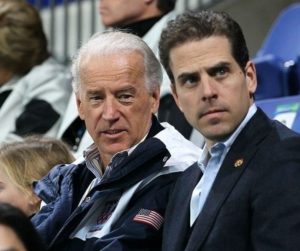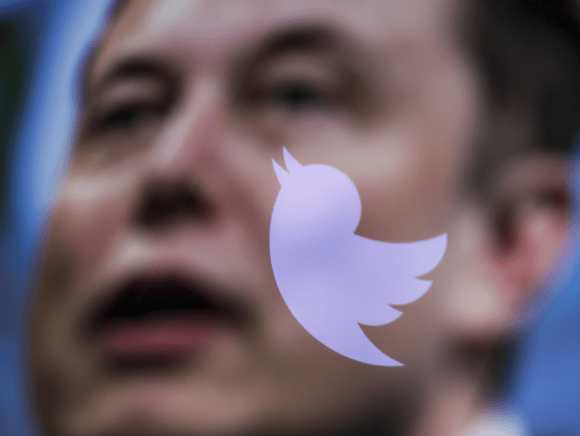For the last two years, there have been many questions surrounding what went on behind the scenes at Twitter regarding the suppression of the New York Post’s coverage of Hunter Biden’s laptop. Billionaire CEO Elon Musk promised to release the documents, and he followed through by allowing Substack journalist and author Matt Taibbi to post his findings in a 36-part “TWITTER FILES” thread. The revelations highlighted how far the social media platform and the Democrats went to suppress the story, despite concerns over violating free speech principles. Ultimately, it placed a spotlight on how powerful Big Tech has become and how Democrats are indifferent to the First Amendment.
Twitter and the Hunter Biden Laptop
The first installment revealed that Democrats and Republicans could ask the social network to take down tweets or remove accounts. The Donald Trump and Joe Biden campaigns would routinely utilize these tools, but “this system wasn’t balanced,” meaning that the left-leaning content moderation team would be more inclined to approve Democratic requests.
 “It was based on contacts. Because Twitter was and is overwhelmingly staffed by people of one political orientation, there were more channels, more ways to complain, open to the left (well, Democrats) than the right,” Taibbi, a former reporter for Rolling Stone, reported. In one example, an executive would inform another “more to review from the Biden team,” which garnered a reply: “Handled.”
“It was based on contacts. Because Twitter was and is overwhelmingly staffed by people of one political orientation, there were more channels, more ways to complain, open to the left (well, Democrats) than the right,” Taibbi, a former reporter for Rolling Stone, reported. In one example, an executive would inform another “more to review from the Biden team,” which garnered a reply: “Handled.”
And this brings the reportage to the how and why of Twitter blocking the Hunter Biden laptop story.
In Oct. 2020, the New York Post published the contents of Hunter’s abandoned laptop, which contained plenty of crucial details involving his father, Ukraine, and other shady deals. It turned into the “Laptop From Hell.” According to the internal documents, Twitter went to great lengths to suppress the article, post “unsafe” warnings, and remove links. “They even blocked its transmission via direct message,” something that would be reserved for extreme content. Then-White House Press Secretary Kayleigh McEnany was locked out of her account for sharing the story on Twitter.

Joe and Hunter Biden (Photo by Bruce Bennett/Getty Images)
Caroline Strom, Twitter’s public policy executive, asked her team to look into the matter. She was informed that the newspaper’s laptop story had been removed because it “violated” the platform’s “Hacked Materials policy.”
“The decision was made at the highest levels of the company, but without the knowledge of CEO Jack Dorsey, with former head of legal, policy and trust, Vijaya Gadde playing a key role,” Taibbi stated. “‘They just freelanced it,’ is how one former employee characterized the decision. ‘Hacking was the excuse, but within a few hours, pretty much everyone realized that wasn’t going to hold. But no one had the guts to reverse it.'”
Later, the censorship led to internal strife and tensions between the communications and policy department and the safety and trust teams, Taibbi noted. Twitter communications official Trenton Kennedy failed “to understand the policy basis for marking this as unsafe,” adding that “we’ll face hard questions on this if we don’t have some kind of solid reasoning for marking the link unsafe.” Eventually, Gadde and Yoel Roth, the global head of trust and safety at Twitter, thought it would be best “to err on the side of…continuing to err.”
Brandon Borrman, the then-vice president of global communications, wondered if Twitter could “truthfully claim that this is part of the policy.” The former deputy general counsel Jim Baker responded that it would be best to stay the course since “caution is warranted,” purporting that some reports suggest they may have been hacked materials and that other articles claimed the laptop was abandoned.
According to Taibbi, only one Democrat had expressed concern surrounding the backlash on Capitol Hill regarding free speech: Rep. Ro Khanna (D-CA). He reached out to Gadde, who outlined Twitter’s policy on hacked materials. But Khanna was more focused on the First Amendment principles and restricting the dissemination of newspaper articles because “it will invite more backlash than it will do good.”
Eventually, figures on Capitol Hill characterized the events as “tech’s Access Hollywood moment,” noted Carl Szabo, a policy counsel at research firm NetChoice, in a letter to the website. He warned that Twitter should prepare for a “blood bath” since the censorship of the Hunter Biden story might be a “tipping point” as lawmakers complain that the tech sector has “grown so big that they can’t even regulate themselves, so government may need to intervene.”
 In the final post of Taibbi’s thread, Szabo explained that Democratic lawmakers argued that the First Amendment and the Bill of Rights are “not absolute.” In fact, Democrats wanted “more moderation” because they did not want a repeat of what happened to Hillary Clinton, who “did nothing wrong but because the press wouldn’t let the story go, it became a scandal far out of proportion.”
In the final post of Taibbi’s thread, Szabo explained that Democratic lawmakers argued that the First Amendment and the Bill of Rights are “not absolute.” In fact, Democrats wanted “more moderation” because they did not want a repeat of what happened to Hillary Clinton, who “did nothing wrong but because the press wouldn’t let the story go, it became a scandal far out of proportion.”
It should be noted that special counsel John Durham has since all but proven that the infamous Trump-Russia “collusion” story of 2016 originated with the Clinton presidential campaign.
Despite all the confusion and frenzy, there was one constant in the entire saga: “How much was done without the knowledge of CEO Jack Dorsey.” In fact, based on Twitter’s documents and communications, Dorsey had regularly intervened to question a broad array of moderation actions and suspensions “for accounts across the political spectrum.”
Part Two Coming Soon
So, is this the end of the Musk documents? Nope. In the coming days, more information will be released about a wide range of issues, including shadow-banning, boosting, follower counts, and various individual accounts. While conservatives have typically been the target of Twitter’s iron fist, “these issues are not limited to the political right,” Taibbi stated. So, as Musk tweeted: “Tune in for Episode 2 of The Twitter Files tomorrow!” Grab the popcorn.




